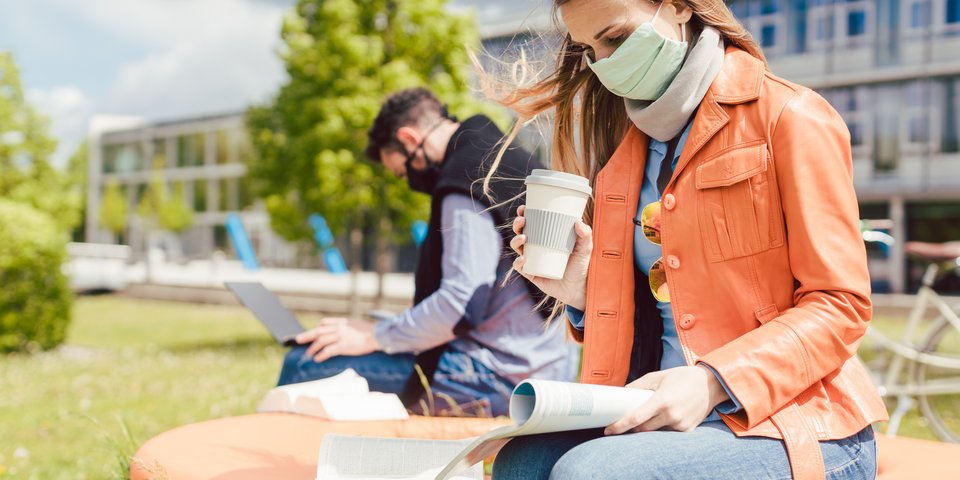
COVID-19 and Well-being
The COVID-19 pandemic has affected all aspects of well-being – including social cohesion.
VS – 11/2021
In all OECD countries, the COVID-19
pandemic has negatively affected the well-being of all. Likewise, the hardest
hit in all of the OECD countries are those, who have already been struggling.
This is shown by an OECD study "COVID-19 and Well-being: Life in the Pandemic." The report states that the
pandemic has been having far-reaching consequences for the way we live, work
and interact with each other, as well as for the economic, human, social and
environmental contexts that determine our well-being.
Decline in life expectancy and impairment of mental health
COVID-19 has devastating effects on
physical health and mortality. Between March 2020 and early May 2021, death
rates in 33 OECD countries were 16 percent higher than the 2015-2019 average.
This also led to a significant decline in average life expectancy. In 2020, this
has fallen by 7 months across 29 OECD countries for which values are already
available.
Mental health also deteriorated during the
pandemic: Data from 15 OECD countries suggest that more than a quarter of
people suffered from depression or anxiety in 2020. While the pandemic still
lingers on, the proportion of people suffering from a burnout is increasing.
Early 2021, one-third of people in 22 European OECD countries reported being
too tired to do necessary household chores after work. The figure was 22 per
cent a year earlier.
Government support measures are working, but fears and uncertainty have increased
Government support has been instrumental in
sustaining average household income levels and largely preventing an increase
in unemployment, particularly in EU Member States. Nevertheless, the pandemic
has led many to fear about losing their jobs. In the 2nd quarter of 2020, for
example, 14% of dependent employees in 19 European OECD countries feared they
were "likely" to lose their job within three months. Also, almost one
in three reported financial difficulties during the pandemic.
Different experiences during the pandemic
The experiences of the people during the
pandemic were varied, depending on the personal situation, sociocultural
background, age and gender. Elderly people had a much higher risk of death or
serious health impairment due to COVID-19 infection. The restriction of social
contacts was a particularly important safety measure in this context. However,
this was accompanied by a considerable risk of loneliness for older people, in
particular. In contrast, the pandemic had hardly any impact on their material
situation. Younger adults face some of the greatest declines in mental health,
social connectedness, and life satisfaction in 2020 and 2021. In most OECD
countries, they also face job losses and insecurity.
There are also differences by gender and
household type. The number of deaths was higher in men than in women. In
contrast, women are more likely to be affected by long-COVID. Women also experienced
a greater deterioration in mental health.
When it comes to pandemic care, women have
often been on the front line, be it occupation or unpaid domestic care. This
shows that even when men increased their share of unpaid work (including
household, child-rearing and care work), this was usually only temporary and
not to the extent of compensating for women's contributions.
The pandemic threatens social cohesion
Trust (in people and institutions) is an
important resilience factor, with higher trust contributing to containment of
the pandemic. At the beginning of the crisis, several OECD countries recorded a
significant increase in confidence in government action and state institutions.
This has since been lost again. In contrast, between 53 and 88% of adults in 12
OECD countries felt their country was more divided now than before the
coronavirus outbreak early 2021.
